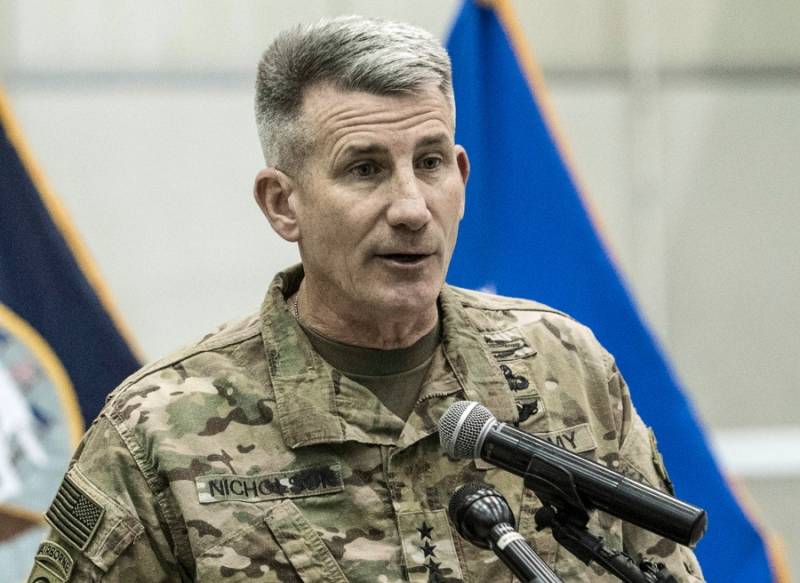WASHINGTON: The US Department of Defence has informed Congress that it has prepared a new strategy for Afghanistan, which includes a long-term engagement with the country and possible deployment of additional American troops.
“Afghanistan is a very important partner for the United States in a very tricky region,” Acting Assistant Secretary of Defence Theresa Whelan told a Senate panel. “We want to maintain the partnership with Afghanistan and we want to ensure that Afghanistan reaches its potential. That’s the objective of the strategy.”
Reports in the US media say the White House is also considering a proposal to provide $23 billion a year to implement the new strategy. The Pentagon informed the Senate panel that it would present a revised Afghan war plan to President Donald Trump within the next week.
During a hearing of the Senate Armed Services Committee, senior defence officials also hinted at the possibility of increasing the US military presence in Afghanistan.
Ms Whelan and General Raymond Thomas, commander of US Special Operations Command, testified to the Senate that the new policy would include major adjustments to the existing plans for defeating the Taliban and other militants and for bringing stability to the war-torn country,
“We are actively looking at adjustments to the approach in Afghanistan right now. I expect that these proposals will go to the president within the next week,” said Ms Whelan while responding to questions from Senator Roger Wicker.
Earlier this year, General John Nicholson, who leads the US and Nato forces in Afghanistan, told the committee that he needed “a few thousand” additional personnel to break the present stalemate in the war against the militants.
Senator Wicker — a Mississippi Republican who is considered a close friend of former Afghan president Hamid Karzai — emphasized the need to move beyond anything that puts the US at a stalemate in Afghanistan.
“This is an important fight that we need to win and there’s every reason that we should be able to do that,” he said. “We have a populist in Afghanistan who supports our presence there. The overwhelming majority of the ethnic groups and tribes appreciate what we stand for and look to the United States for leadership.”
“And the intent is to do just that, to move beyond the stalemate,” said Ms Whelan while responding to his remarks, reminding the lawmaker that the Pentagon to realized the importance of building a long-term relationship with Afghanistan.
Earlier in the hearing, the committee’s chairman John McCain reminded Gen Thomas that in his testimony before this panel earlier this year he had admitted reaching a stalemate in Afghanistan.
“We are aware of Commander Nicholson’s description of the current status of the fight as a stalemate. I recently returned from Afghanistan, it is admittedly a very tough fight. We are in the beginning of another fight season,” the general said.
Gen Thomas, however, reminded the veteran lawmaker that the US forces had achieved their main objective in Afghanistan: “The avoidance of another attack from that area and that certainly is an accomplishment and something we need to reinforce going forward.”
Senator McCain interrupted the general and reminded him that “a stalemate means it does not end”.
“I understood the commander’s assessment of a stalemate as an opportunity to change the strategy,” the general replied.
“If the current stalemate prevails, there’s no end to it? What do you think needs to be done to end the stalemate?” asked Senator McCain, interrupting the general.
Gen Thomas said that Gen Nicholson and the secretary of defence were pursuing new initiatives to end this stalemate and he supported their initiative.
“What do you think is needed, Gen Thomas?” asked Senator McCain.
“We are in a discussion about what needs to be done and I am supporting of the commander and supporting the secretary of defence,” said the general.
Senator McCain reminded him that he was under oath to share his view with the panel and asked him again: “What do you think needs to be done?”
Gen Thomas said he believed the critical factor in Afghanistan was the US commitment to “a sound enduring state” there, which he said, was “not described effectively” in the past. “I think our new strategy is going to establish that definition,” he added.
“Does it mean additional troops?” Senator McCain asked. “Additional troops are being considered,” Gen Thomas replied






